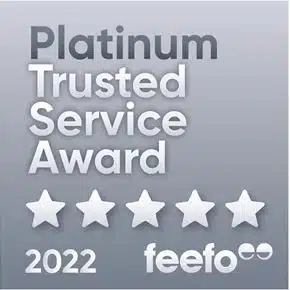Keep on top of your vehicle costs with Savvy’s car lease calculator
Leasing a vehicle may be a cost-effective option for you or your business, but it’s important to understand all of the potential charges involved. Our car lease calculator will show you your monthly repayments, as well as the total interest you’ll pay, to help you keep on top of your costs, whether you're leasing a car or a piece of equipment.
How do I use Savvy’s car lease calculator?
To use the car lease calculator, enter the purchase price of your car or equipment and the residual value agreed between you and your leasing company. Next, enter the leasing term, the interest rate and how payments are made: either in advance (payment is made before the month of leasing) or in arrears (payment is made after the month of leasing).
Once you’ve filled all this out, you’ll be able to see how much your monthly payment, total interest payable and total overall cost are. You can use the calculator to play around with different numbers until you arrive at a monthly repayment and term that you’re comfortable with. From there, you can use this information when you’re negotiating your agreement with your lease provider and/or employer.
What leases can I use this calculator for?
Finance leases
Finance leases are flexible agreements available to businesses for a range of assets, from cars to specialist commercial vehicles like trucks, forklifts and excavators to equipment. As this is an agreement between your business and the lessor, you’ll make payments directly to them.
At the end of the lease, you’ll have the option to buy the car, sell it, trade it in or refinance the residual and extend your lease. You can also decide whether to include on-road costs like registration, insurance and servicing in your repayments (fully-maintained) or keep them separate (non-maintained).
Operating lease
The key difference between operating leases and the rest is that they come without residual payments, meaning you’ll simply hand your vehicle back at the end of your term. This makes them suitable for businesses wanting a shorter-term lease, after which they can replace or update their vehicles or equipment more often.
These leases are generally only available for road vehicles, rather than specialised commercial equipment. Like finance leases, though, you can decide between fully-maintained and non-maintained agreements.
Novated leases
A novated lease is a three-way arrangement between you, your employer and a leasing company (lessor). The lessor buys your car and provides it to your employer, who then gives it to you. The payments for the lease are deducted from your pre-tax salary and are passed directly to the lessor, which is known as salary sacrificing. You’ll have the same options for dealing with the residual at the end of your lease term, giving businesses flexibility in how to manage it.
The major benefit of novated leasing is that it reduces your taxable income, given that your payments are made pre-tax, rather than post-tax. The GST on the purchase of the car is also claimable by your lessor, who can pass the savings onto you. Also, you can use the car however you like, for private or commercial purposes. This calculator doesn't factor in any income tax savings you may benefit from, though.
What factors impact the cost of my lease?
There’s a range of variables that’ll impact your lease’s overall cost, including the following:
- The cost of the asset
- The leasing term
- Your lessor’s interest rate
- Your lessor’s fees
- The size of your residual (if applicable)
The following tables show how some of these factors can impact how much you’ll be paying in interest overall:
Asset cost and interest rate
| Purchase price | 7.50% p.a. | 8.50% p.a. | 9.50% p.a. |
|---|---|---|---|
| $20,000 | $5,018 | $5,712 | $6,412 |
| $30,000 | $7,526 | $8,567 | $9,617 |
| $50,000 | $12,544 | $14,278 | $16,028 |
| $75,000 | $18,815 | $21,418 | $24,043 |
Calculations based on five-year lease terms with monthly payments made in arrears and residual values worth 28.13% of the purchase price.
Leasing term and size of residual
| Purchase price | Lease term | Residual | Interest rate | Monthly payment | Total interest |
|---|---|---|---|---|---|
| $30,000 | One year | $19,689 | 7.50% p.a. | $1,018 | $1,901 |
| $30,000 | Two years | $16,875 | 7.50% p.a. | $697 | $3,582 |
| $30,000 | Three years | $14,064 | 7.50% p.a. | $584 | $5,074 |
| $30,000 | Four years | $11,250 | 7.50% p.a. | $524 | $6,387 |
| $30,000 | Five years | $8,439 | 7.50% p.a. | $485 | $7,526 |
Calculations based on leases with monthly payments made in arrears and residual values worth the minimum required value as set by the ATO.
What our customers say about their finance experience



Savvy is rated 4.9 for customer satisfaction by 6525 customers.
- ATO Interpretative Decision: ATO ID 2002/1004 - Australian Taxation Office
